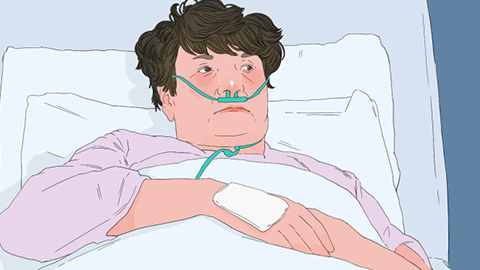How to manage gallstones
Adjustment and management of gallstones should be carried out through reasonable diet, appropriate exercise, regular作息, following medical advice for medication, and routine check-ups. Comprehensive management can reduce gallbladder irritation, slow the progression of stones, and lower the risk of inflammatory episodes. If severe pain in the upper right abdomen, fever, or jaundice occurs during management, prompt visit to a hepatobiliary surgery department is necessary.

1. **Balanced Diet**: Follow a low-fat, low-cholesterol diet. Avoid fried foods, fatty meats, and animal offal. Increase intake of vegetables, fruits, and whole grains. Use steaming, boiling, or stewing for cooking, and minimize frying. Control portion sizes and avoid overeating, which increases the burden on the gallbladder.
2. **Appropriate Exercise**: Engage in 3–4 sessions per week of mild physical activity such as brisk walking or tai chi, lasting 20–30 minutes each. Avoid strenuous exercise. Regular movement promotes metabolism, helps control body weight, reduces bile stagnation, and assists in preventing stone enlargement.
3. **Regular作息**: Maintain consistent sleep and wake times daily, ensuring 7–8 hours of sleep and avoiding late nights. A regular schedule supports normal gallbladder contraction rhythms, prevents bile retention caused by irregular routines, and reduces factors contributing to stone formation.
4. **Follow Medical Advice for Medication**: If inflammation is present or if your doctor prescribes medications for dissolving stones or promoting bile flow, take them exactly as directed in terms of dosage and duration. Do not adjust or discontinue medication without consulting your doctor. Monitor your body's response and report any adverse effects promptly.
5. **Regular Check-ups**: Undergo an ultrasound examination of the gallbladder every 6–12 months to monitor stone size, number, and gallbladder wall condition. Keep track of symptoms such as abdominal pain or bloating, which will help doctors adjust your management plan accordingly.
Daily care should also include maintaining a positive mood and avoiding extreme emotional fluctuations. Drink a moderate amount of water before meals, chew food thoroughly during meals, choose fresh ingredients, and avoid expired or spoiled food to support gallbladder health.






